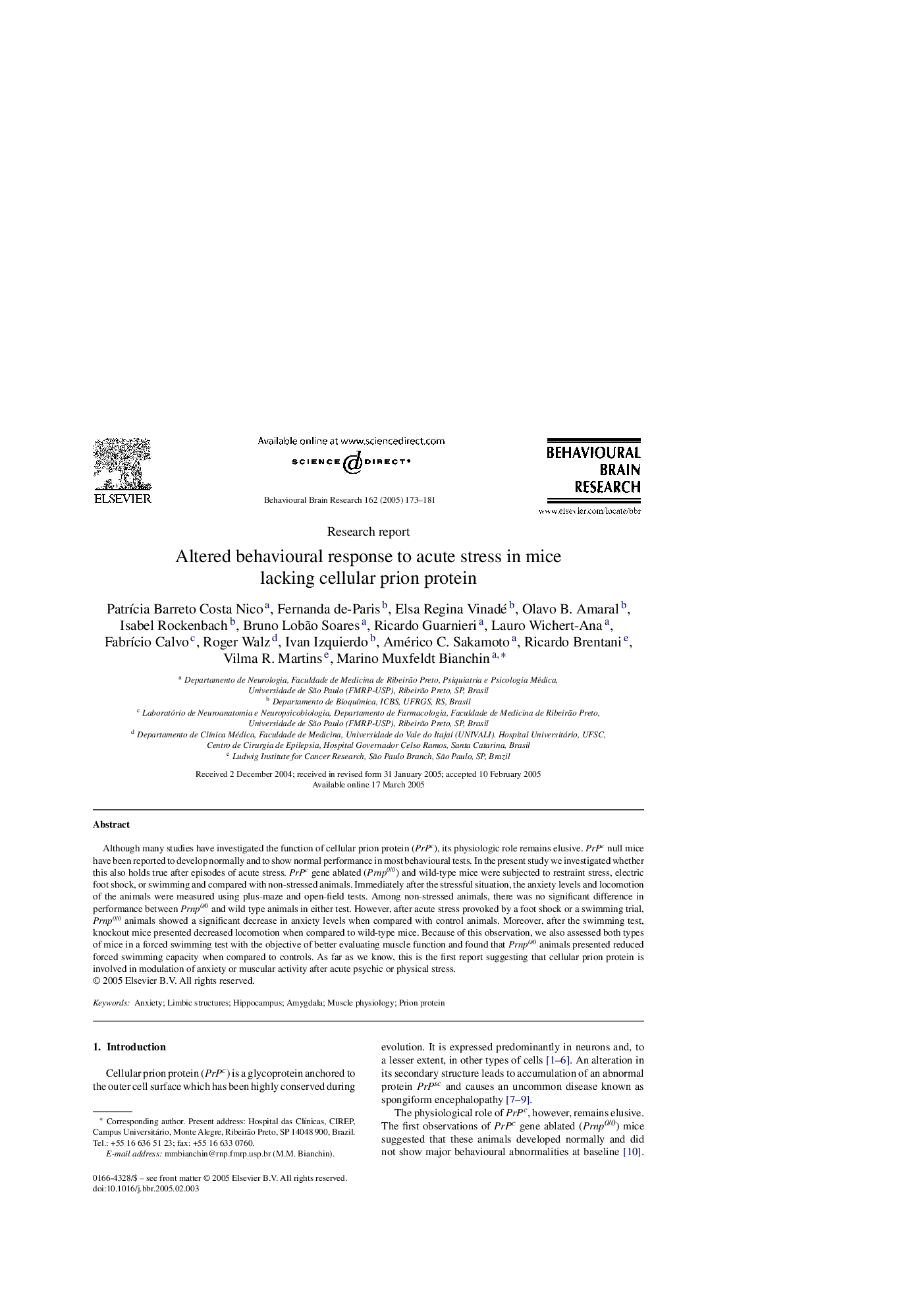| Article ID | Journal | Published Year | Pages | File Type |
|---|---|---|---|---|
| 9406404 | Behavioural Brain Research | 2005 | 9 Pages |
Abstract
Although many studies have investigated the function of cellular prion protein (PrPc), its physiologic role remains elusive. PrPc null mice have been reported to develop normally and to show normal performance in most behavioural tests. In the present study we investigated whether this also holds true after episodes of acute stress. PrPc gene ablated (Prnp0/0) and wild-type mice were subjected to restraint stress, electric foot shock, or swimming and compared with non-stressed animals. Immediately after the stressful situation, the anxiety levels and locomotion of the animals were measured using plus-maze and open-field tests. Among non-stressed animals, there was no significant difference in performance between Prnp0/0 and wild type animals in either test. However, after acute stress provoked by a foot shock or a swimming trial, Prnp0/0 animals showed a significant decrease in anxiety levels when compared with control animals. Moreover, after the swimming test, knockout mice presented decreased locomotion when compared to wild-type mice. Because of this observation, we also assessed both types of mice in a forced swimming test with the objective of better evaluating muscle function and found that Prnp0/0 animals presented reduced forced swimming capacity when compared to controls. As far as we know, this is the first report suggesting that cellular prion protein is involved in modulation of anxiety or muscular activity after acute psychic or physical stress.
Related Topics
Life Sciences
Neuroscience
Behavioral Neuroscience
Authors
PatrÃcia Barreto Costa Nico, Fernanda de-Paris, Elsa Regina Vinadé, Olavo B. Amaral, Isabel Rockenbach, Bruno Lobão Soares, Ricardo Guarnieri, Lauro Wichert-Ana, FabrÃcio Calvo, Roger Walz, Ivan Izquierdo, Américo C. Sakamoto, Ricardo Brentani,
